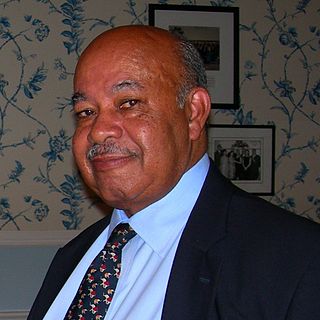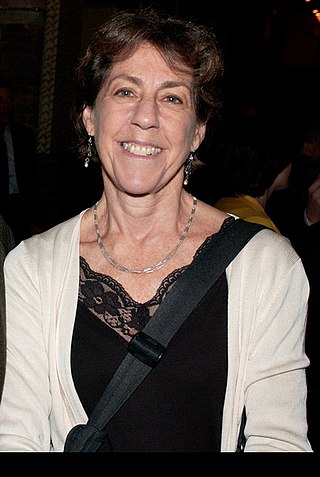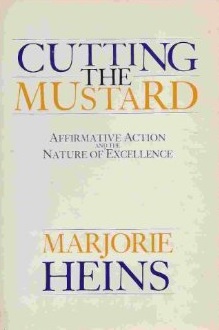Regents of the University of California v. Bakke, 438 U.S. 265 (1978), was a landmark decision by the Supreme Court of the United States that involved a dispute of whether preferential treatment for minorities could reduce educational opportunities for whites without violating the Constitution. It upheld affirmative action, allowing race to be one of several factors in college admission policy. However, the court ruled that specific racial quotas, such as the 16 out of 100 seats set aside for minority students by the University of California, Davis, School of Medicine, were impermissible.
Grutter v. Bollinger, 539 U.S. 306 (2003), was a landmark case of the Supreme Court of the United States concerning affirmative action in student admissions. The Court held that a student admissions process that favors "underrepresented minority groups" did not violate the Fourteenth Amendment's Equal Protection Clause so long as it took into account other factors evaluated on an individual basis for every applicant. The decision largely upheld the Court's decision in Regents of the University of California v. Bakke (1978), which allowed race to be a consideration in admissions policy but held racial quotas to be unconstitutional. In Gratz v. Bollinger (2003), a separate case decided on the same day as Grutter, the Court struck down a points-based admissions system that awarded an automatic bonus to the admissions scores of minority applicants.

Wardell Anthony "Ward" Connerly is an American political and anti-affirmative action activist, businessman, and former University of California Regent (1993–2005). He is also the founder and the chairman of the American Civil Rights Institute, a national non-profit organization in opposition to racial and gender preferences, and is the president of Californians for Equal Rights, a non-profit organization active in the state of California with a similar mission. He is considered to be the man behind California's Proposition 209 prohibiting race- and gender-based preferences in state hiring, contracting and state university admissions, a program known as affirmative action.

Proposition 209 is a California ballot proposition which, upon approval in November 1996, amended the state constitution to prohibit state governmental institutions from considering race, sex, or ethnicity, specifically in the areas of public employment, public contracting, and public education. Modeled on the Civil Rights Act of 1964, the California Civil Rights Initiative was authored by two California academics, Glynn Custred and Tom Wood. It was the first electoral test of affirmative action policies in North America. It passed with 55% in favor to 45% opposed, thereby banning affirmative action in the state's public sector.
Lau v. Nichols, 414 U.S. 563 (1974), was a United States Supreme Court case in which the Court unanimously decided that the lack of supplemental language instruction in public school for students with limited English proficiency violated the Civil Rights Act of 1964. The court held that since non-English speakers were denied a meaningful education, the disparate impact caused by the school policy violated Title VI of the Civil Rights Act of 1964 and the school district was demanded to provide students with "appropriate relief".
Dale Minami is a prominent Japanese American civil rights and personal injury lawyer based in San Francisco, California. He is best known for his work leading the legal team that overturned the conviction of Fred Korematsu, whose defiance of the incarceration of Japanese Americans during World War II led to Korematsu v. United States, which is widely considered one of the worst and most racist Supreme Court decisions in American history.

The Michigan Civil Rights Initiative (MCRI), or Proposal 2, was a ballot initiative in the U.S. state of Michigan that passed into Michigan Constitutional law by a 58% to 42% margin on November 7, 2006, according to results officially certified by the Michigan Secretary of State. By Michigan law, the Proposal became law on December 22, 2006. MCRI was a citizen initiative aimed at banning consideration of race, color, sex, or religion in admission to colleges, jobs, and other publicly funded institutions – effectively prohibiting some affirmative action by public institutions based on those factors. The Proposal's constitutionality was challenged in federal court, but its constitutionality was ultimately upheld by the Supreme Court of the United States.
The Lawyers' Committee for Civil Rights Under Law, or simply the Lawyers' Committee, is an American civil rights organization founded in 1963 at the request of President John F. Kennedy.

In the United States, affirmative action consists of government-mandated, government-approved, and voluntary private programs granting special consideration to groups considered or classified as historically excluded, specifically racial minorities and women. These programs tend to focus on access to education and employment in order to redress the disadvantages associated with past and present discrimination. Another goal of affirmative action policies is to ensure that public institutions, such as universities, hospitals, and police forces, are more representative of the populations they serve.

Marjorie Heins is a First Amendment lawyer, writer and founder of the Free Expression Policy Project.

Maya Lakshmi Harris is an American lawyer, public policy advocate, and writer. Harris was one of three senior policy advisors for Hillary Clinton's 2016 presidential campaign's policy agenda and she also served as chair of the 2020 presidential campaign of her sister, Kamala Harris.
Equal Rights Advocates (ERA) is an American non-profit gender justice/women's rights organization that was founded in 1974. ERA is a legal and advocacy organization for advancing rights and opportunities for women, girls, and people of gender identities through legal cases and policy advocacy.
Strauss v. Horton, 46 Cal. 4th 364, 93 Cal. Rptr. 3d 591, 207 P.3d 48 (2009), was a decision of the Supreme Court of California, the state's highest court. It resulted from lawsuits that challenged the voters' adoption of Proposition 8 on November 4, 2008, which amended the Constitution of California to outlaw same-sex marriage. Several gay couples and governmental entities filed the lawsuits in California state trial courts. The Supreme Court of California agreed to hear appeals in three of the cases and consolidated them so they would be considered and decided. The supreme court heard oral argument in the cases in San Francisco on March 5, 2009. Justice Kathryn Mickle Werdegar stated that the cases will set precedent in California because "no previous case had presented the question of whether [a ballot] initiative could be used to take away fundamental rights".

Suzanne Post was a civil rights activist in the struggle against discrimination and social injustice in Kentucky. She was born to Morris and Betty Kling in Louisville, Kentucky on March 19, 1933. She joined a student branch of the National Association for the Advancement of Colored People while a student at Indiana University, and continued her student activism at the University of California Berkeley. In her long career, she advocated for social justice and led the way in the battle for civil rights, women's rights, LGBTQ rights, and equity in housing and education. Her Uncle Arthur Kling helped found the Kentucky Civil Liberties Union in 1955 and served on the Board of the Louisville Urban League. Michael Aldridge, a former ACLU director, in an article for the Louisville Courier Journal, wrote "the Kling family 's own personal experience with bigotry, and a shared memory of historic oppression and violence, made them fight all prejudice and restrictions on the civil liberties of others".

Senate Constitutional Amendment 5 was introduced by California State Senator Edward Hernandez to the California State Senate on December 3, 2012. This initiative would ask voters to consider eliminating California Proposition 209's ban on the use of race, sex, color, ethnicity, or national origin in recruitment, admissions, and retention programs at California's public universities and colleges. SCA 5 was passed in the California Senate on January 30, 2014 but was subsequently withdrawn by Hernandez due to strong opposition, mainly from Asian Americans.

Cutting the Mustard: Affirmative Action and the Nature of Excellence is a 1987 non-fiction book by civil libertarian and United States lawyer Marjorie Heins about the Equal Protection Clause of the Fourteenth Amendment to the United States Constitution and its relationship to affirmative action and sexism. Heins discusses the case of Nancy Richardson, dean of student affairs at the Boston University School of Theology, who was removed from her position by the school's administration in 1981. Heins represented Richardson in an unsuccessful lawsuit against Boston University for wrongful termination and sexism. Cutting the Mustard recounts the case, interspersing reflections on the lawsuit with a discussion of relevant case law, decisions by the Supreme Court of the United States related to affirmative action and multiple criticisms of contradictory court decisions in affirmative-action cases.
Students for Fair Admissions v. Harvard, 600 U.S. 181 (2023), is a landmark decision of the Supreme Court of the United States in which the court held that race-based affirmative action programs in college admissions processes violate the Equal Protection Clause of the Fourteenth Amendment. With its companion case, Students for Fair Admissions v. University of North Carolina, the Supreme Court effectively overruled Grutter v. Bollinger (2003) and Regents of the University of California v. Bakke (1978), which validated some affirmative action in college admissions provided that race had a limited role in decisions.

Aileen Hernandez was an African-American union organizer, civil rights activist, and women's rights activist. She served as the president of the National Organization for Women (NOW) between 1970 and 1971, and was the first woman to serve on the Equal Employment Opportunity Commission.

Proposition 16 is a California ballot proposition that appeared on the November 3, 2020, general election ballot, asking California voters to amend the Constitution of California to repeal Proposition 209 (1996). Proposition 209 amended the state constitution to prohibit government institutions from considering race, sex, or ethnicity, specifically in the areas of public employment, public contracting, and public education. Therefore, Proposition 209 banned the use of race- and gender-based affirmative action in California's public sector.
Mary Cynthia Dunlap was an American civil rights lawyer based in San Francisco, California. She directed San Francisco's Office of Citizen Complaints (OCC).









